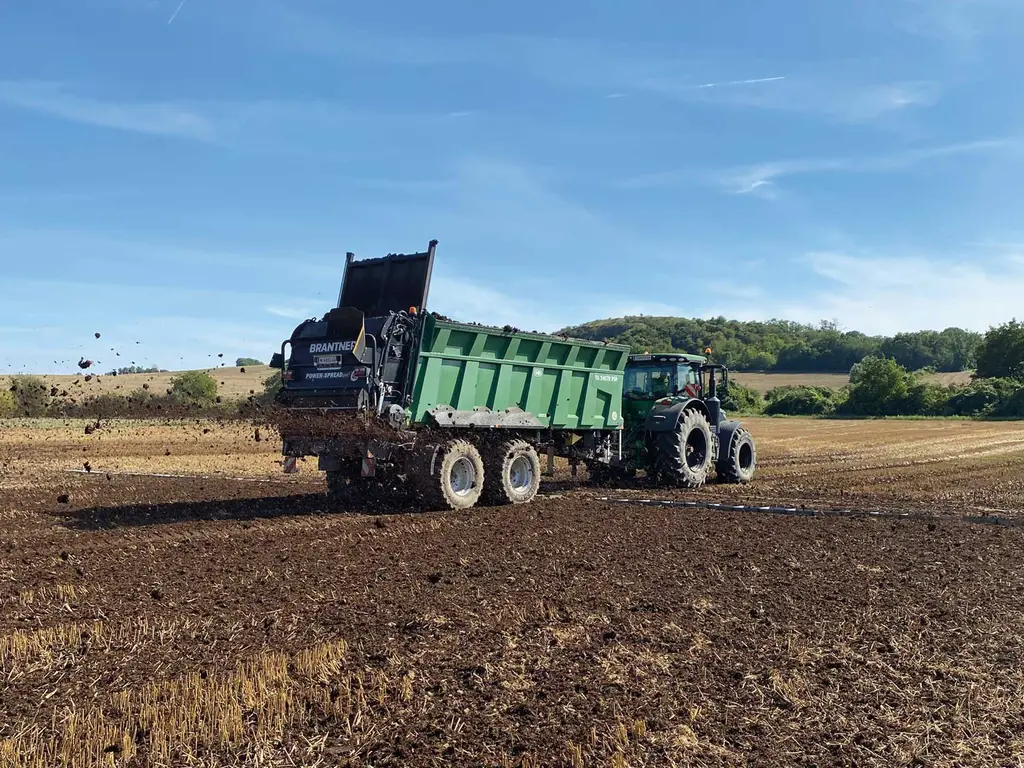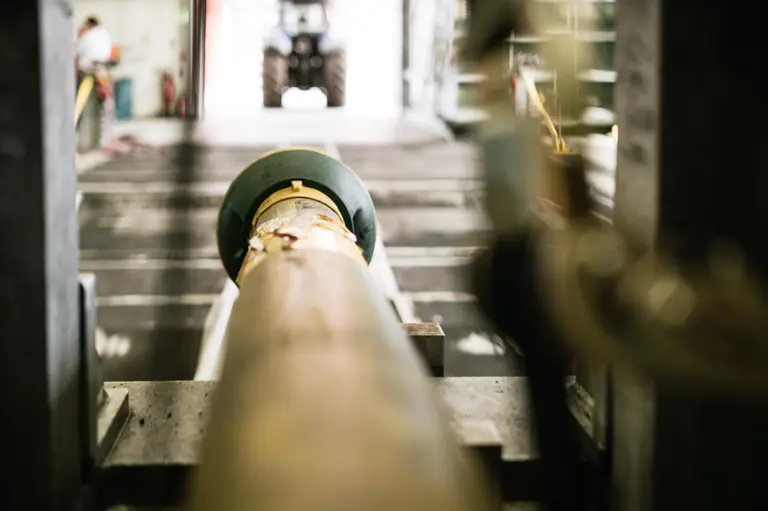Download print version
Test report 7448
The approval
A test mark „DLG-APPROVED for individual criteria“ is awarded for agricultural products which have successfully fulfilled a scope-reduced usability testing conducted by DLG according to independent and recognised evaluation criteria. The test is intended to highlight particular innovations and key criteria of the test object. The test may contain criteria from the DLG test scope for overall tests, or focus on other value-determining characteristics and properties of the test subject. The minimum requirements, test conditions and procedures as well as the evaluation bases of the test results will be specified in consultation with an expert group of DLG. They correspond to the recognised rules of technology, as well as scientific and agricultural knowledge and requirements. The successful testing is concluded with the publication of a test report, as well as the awarding of the test mark which is valid for five years from the date of awarding.
The DLG Appoved Test “Deformability/Elasticity, Permanent Tread Load” includes technical measurements on test stands of the DLG Test Center. The deformability and elasticity were measured and a permanent tread load was applied. The test was based on the DLG Testing Framework for elastic stable flooring, as of December 2018 and DIN 3763:2022-08 (Elastic floorings for cattle and dairy cows walking and rest surfaces – Requirements and testing).
Other criteria were not investigated.
Assessment – brief summary
The SANDA sand bed grid tested here, a system module for creating a lying surface in cubicle stables for cows and cattle, has been tested in the DLG-approved individual criteria test on test benches for durability and durability and comfort properties investigated. Requirements of DIN 3763 are fulfilled for the tested criteria. Deformation and Elasticity corresponds to class 2 DIN 3763.
Table 1: Overview of results
| DLG quality profile | Evaluation* |
| Deformability and elasticity in new condition | ■■■■■ |
| Deformability and elasticity following endurance test | ■■■■■ |
| No lasting deformation on the grid | ■■■■■ |
| Low wear on the webs of the grid | ■■■■■ |
* DLG Evaluation range: ■■■ or better = meets, exceeds or significantly exceeds the established DLG standards, ■■ = meets the legal requirements for marketability, ■= failed
The product
Description and Technical Data
The SANDA sand bed grid tested here is a system module for creating a lying surface in high boxes in cubicle stables for cows and cattle.
- Black rubber sand bed grid with 24 openings (dimensions of the openings: approx. 5.5 cm x 15 cm).
- 4 grids are required per cubicle.
- The 24 openings per grid are filled with damp slurry or unwashed cable sand.
- The surface of the grids should be overfilled and compacted about 3 cm with moist sand. Approx. 5 cm of litter should be applied to the solidified surface.
- The 4 grids per cubicle are laid floating.
- Dimensions of the grid: length 80 cm, width 60 cm, height 10 cm
- Weight: 26,5 kg
- Shore A hardness: 65
The method
Deformability and elasticity
The deformability is measured in new condition and following permanent tread load using ball penetration tests with a calotte (r = 120 mm) and a penetration force of 2,000 N (corresponding to approx. 200 kg).
Permanent tread load
The permanent tread load is measured on a test stand with a round steel foot in the standard test programme with 100,000 alternating loads at 10,000 N (corresponding to approx. 1,000 kg). The steel foot is adapted to the natural conditions as an “artificial cow foot”. The foot has a diameter of 105 mm and therefore a contact area of 75 cm²; the carrying edge of the hoof is simulated by a 5 mm wide ring on the periphery of the sole that projects 1 mm above the rest of the surface.
The test results in detail
Deformability and elasticity
In the ball penetration tests in new condition with a calotte (r = 120 mm), penetration depth was 28.9 mm with 5 cm straw pellet bedding. The resulting calculated bearing pressure of 9.2 N/cm² indicates a very low load on the carpal joints when lying down and getting up.
Elasticity was measured following a permanent tread load exerted by a steel foot (contact area: 75 cm²) with 100,000 alternating loads at 10,000 N. Following the endurance test, the penetration depth of the calotte decreased from 28.9 mm to 10.4 mm. The bearing pressure increased from 9.2 N/cm² to 25.5 N/cm² (see Fig. 5). This means that deformability and elasticity decrease.
Permanent tread load
After continuous tread loading on a test bench with 100,000 alternating loads at 10,000 N, wear was detected on the webs
of the grid. A permanent deformation at the honeycomb cannot be determined.
Based on test-stand investigations, the criteria tested in this DLG Approved Test evaluate the comfort and durability properties of the SANDA sand bed grid for use in the resting area of high cubicles in cubicle houses. The tested SANDA sand bed honeycomp met the requirements of DIN 3763 and the DLG Testing Framework with respect to the investigated criteria. Deformation and Elasticity corresponds to class 2 DIN 3763.
Manufactor/Applicant
Oberleitner Windschutz GmbH & Co. KG
Engelsberger Straße 8, 83342 Tacherting,
Germany
Contact:
Phone +49 (0)8074 915700-0
Fax +49 (0)8074 915700-19
info@oberleitner-windschutz.com
www.oberleitner-windschutz.com
Test implementation
DLG TestService GmbH, Gross-Umstadt location
The tests are conducted on behalf of DLG e.V.
DLG test framework
DLG Testing Framework for elastic stable flooring, as of December 2018
DIN 3763:2022-08 (Elastic floorings for cattle and dairy cows walking and rest surfaces – Requirements and testing)
Department
Agriculture
Head of Department
Dr. Michael Eise
Test engineer(s)
Dr. Harald Reubold *
* Author
Contact us
DLG TestService GmbH - Groß-Umstadt location • Max-Eyth-Weg 1 • 64823 Groß-Umstadt • Tel: +49 69 24 788-600 • tech@DLG.org



















